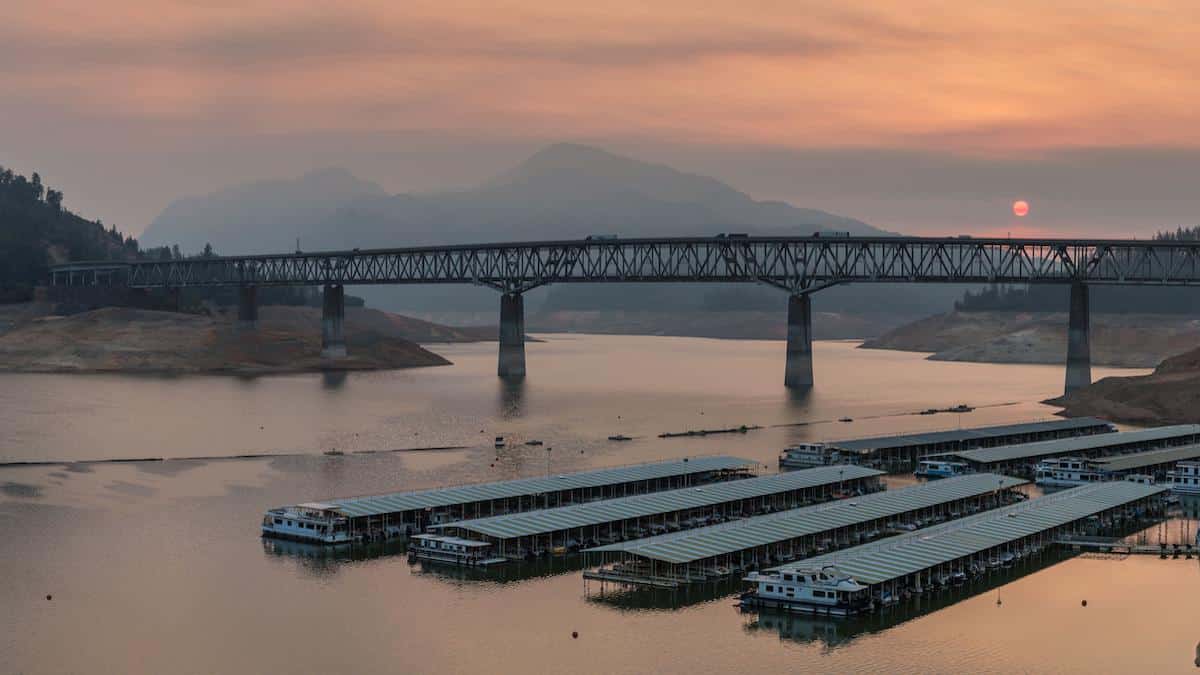

Shasta Lake, California's largest water reservoir, at 30% capacity and under smoky conditions due to the Dixie and other fires burning in the area on Aug. 4, 2021, near Redding, California. George Rose / Getty Images
NOAA found that the average temperature of meteorological summer – June, July, and August – was 2.6°F (1.45°C) above the 20th century average, a troubling sign as global temperatures continue to increase faster than previously thought.
All seven of the warmest years on record have been the last seven years, and 19 of the 20 warmest years have occurred since 2000. More than 18% of the contiguous U.S. experienced record heat this summer, and several states, including California, Nevada, Utah and Oregon had their hottest temperatures on record.
No state reported temperatures that fell below average. The record heat coincided with extreme weather across the country, including extreme heat, wildfires, drought and flooding.
As reported by The Washington Post:
Over 2 million acres have burned so far this year in California, and about 15,000 firefighters are currently battling active blazes. According to the National Interagency Fire Center, the country remains at “Preparedness Level 5” — the highest level of wildfire activity. Such activity includes “large, complex wildland fire incidents, which have the potential to exhaust national wildland firefighting resources.”
Research has established a clear link between climate change and a sharp rise in the areas burned in California in the past several decades, as increasing temperatures dry out vegetation.
—
The high temperatures have also intensified severe drought conditions. Drought currently covers 94 percent of the West, according to the Federal Drought Monitor. Nearly 60 percent of the region is in extreme to exceptional drought.
For a deeper dive:
CNN, Gizmodo, Los Angeles Times, The Hill, The New York Times, The Washington Post; Climate Signals background: Extreme heat and heatwaves, 2021 Western wildfire season, Drought, Extreme precipitation increase, 2021 Atlantic hurricane season
For more climate change and clean energy news, you can follow Climate Nexus on Twitter and Facebook, sign up for daily Hot News, and visit their news site, Nexus Media News.
- July 2021 Hottest Month Ever Recorded, Says NOAA - EcoWatch
- NOAA Names 2020 Second-Hottest Year on Record; NASA Says It ...
- Extreme heat waves in a warming world don't just break records ...
- The Top 10 Extreme Weather and Climate Events of 2020 - EcoWatch

 233k
233k  41k
41k  Subscribe
Subscribe 